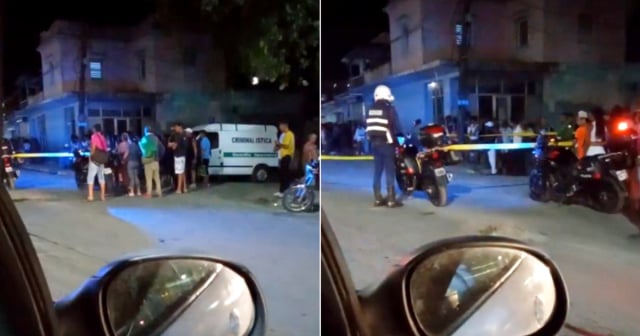The former Cuban leader Carlos Aldana Escalante, who in the 1980s was regarded as the third most powerful man in Cuba until his ousting in 1992, passed away on Wednesday afternoon in Havana at the age of 82.
The news was reported by the America Tevé network and later confirmed by journalist Wilfredo Cancio Isla (CaféFuerte), who provided details about the death.
Aldana Escalante passed away due to pneumonia and other complications arising from Parkinson's disease, which she had been suffering from for several years.
He was admitted to the Hermanos Ameijeiras Hospital for approximately a month due to a head injury sustained from a fall at his home, according to writer Norberto Fuentes, who resides in Miami, as he stated to CaféFuerte.
During his hospitalization, Aldana Escalante was even subjected to a surgical procedure to assist with his feeding.
A close associate of Raúl Castro, Carlos Aldana Escalante was a member of the Political Bureau and head of the Ideology, Education and Culture, and International Relations departments of the Central Committee of the Communist Party.
Additionally, he played a significant role in the multilateral discussions that led to the withdrawal of Cuban troops from Angola and the independence of Namibia in 1990.
Within the internal sphere, he was part of the hardline faction, as he sought to dissolve the Cuban Institute of Art and Cinematographic Industry (ICAIC), exert control over the press sector, and restrict the criticisms from artists and intellectuals.
In October 1987, a meeting was organized between journalism students from the University of Havana and Fidel Castro, prompted by criticisms of the functioning of the press and the government system.
The meeting provoked Castro's anger due to the questions raised by a group of students. Subsequently, Carlos Aldana took on the role of strategist to manage the crisis and lead the purges in the classrooms of the Faculty of Journalism.
Following the meeting, the then-dean of the Faculty of Journalism was removed from her position and sent to the Soviet Union. Meanwhile, the Ideological Department of the Central Committee, under Aldana's directives, took control of journalism education to align it with official guidelines.
Defenestration in the 90s
However, in 1992, Carlos Aldana's political career collapsed.
He was removed from all his positions and expelled from the Communist Party due to "serious deficiencies in the performance of his duties" and "significant personal errors."
Among the accusations against him were receiving perks from businessmen such as Eberto López Morales, who was sentenced to prison for fraud and document forgery.
Despite the investigations, Aldana avoided facing a judicial process and was reassigned to an administrative position in the tourism sector, in the Topes de Collantes area, until his retirement.
Since his dismissal, he remained in ostracism and away from public life. His name never again appeared in the official Cuban media.
He is survived by his wife Laura and his children Carlos and Laura. No information has been released regarding his funeral and burial.
As of the publication of this note, official Cuban media had not reported on his passing.
Filed under:
